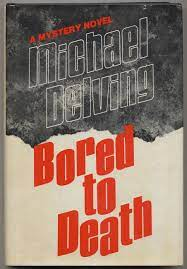I've avoided reading The Missing Moneylender, by W. Stanley Sykes, for a long time. A blog post I read about it suggested that the story is hopelessly antisemitic and I've read more than enough Golden Age books featuring Jewish moneylenders in a tediously stereotyped way. However, when I saw a green Penguin copy in a nice Shetland second hand bookshop, I did another check and found other reviews that very favourable. The excellent Vintage Pop Fictions blog, for instance, says it's doubtful that 'even the most politically correct reader could find anything here to worry them'. In the current climate, that seems over-optimistic, but John Norris, another blogger of distinction, mounts powerful arguments in defence of the book, noting that the characterisation is more vivid than was customary in detective stories of the time.
Now I've read the book, which was first published in 1931, I must say that I think that it is a first novel which, despite some flaws, is most definitely a cut above the typical Golden Age debut, despite the inclusion of a few casual descriptions that add nothing to the story but no doubt prompted the criticism. Other commentators have pointed out that Sykes produced a sort of hybrid between Croftsian police investigation and a sort of impossible crime mystery. There's a general consensus that it's difficult to say too much about the storyline without giving spoilers.
It's not really a whodunit - the main interest lies in howdunit. Sykes was a doctor with expertise in the field of anaesthetics and he puts his know-how to good use. Even more importantly, he writes in an agreeably readable style, so this is a quick and entertaining read, with a number of good plot twists.
Sykes (1894-1961) wrote just three novels and a few short stories - I've not read any of his other fiction, and it's hard to find. After the 1930s he concentrated on non-fiction and wrote a seminal three-volume history of anaesthetics. Suffice to say that if you like Richard Austin Freeman, you'll almost certainly enjoy this novel.






































